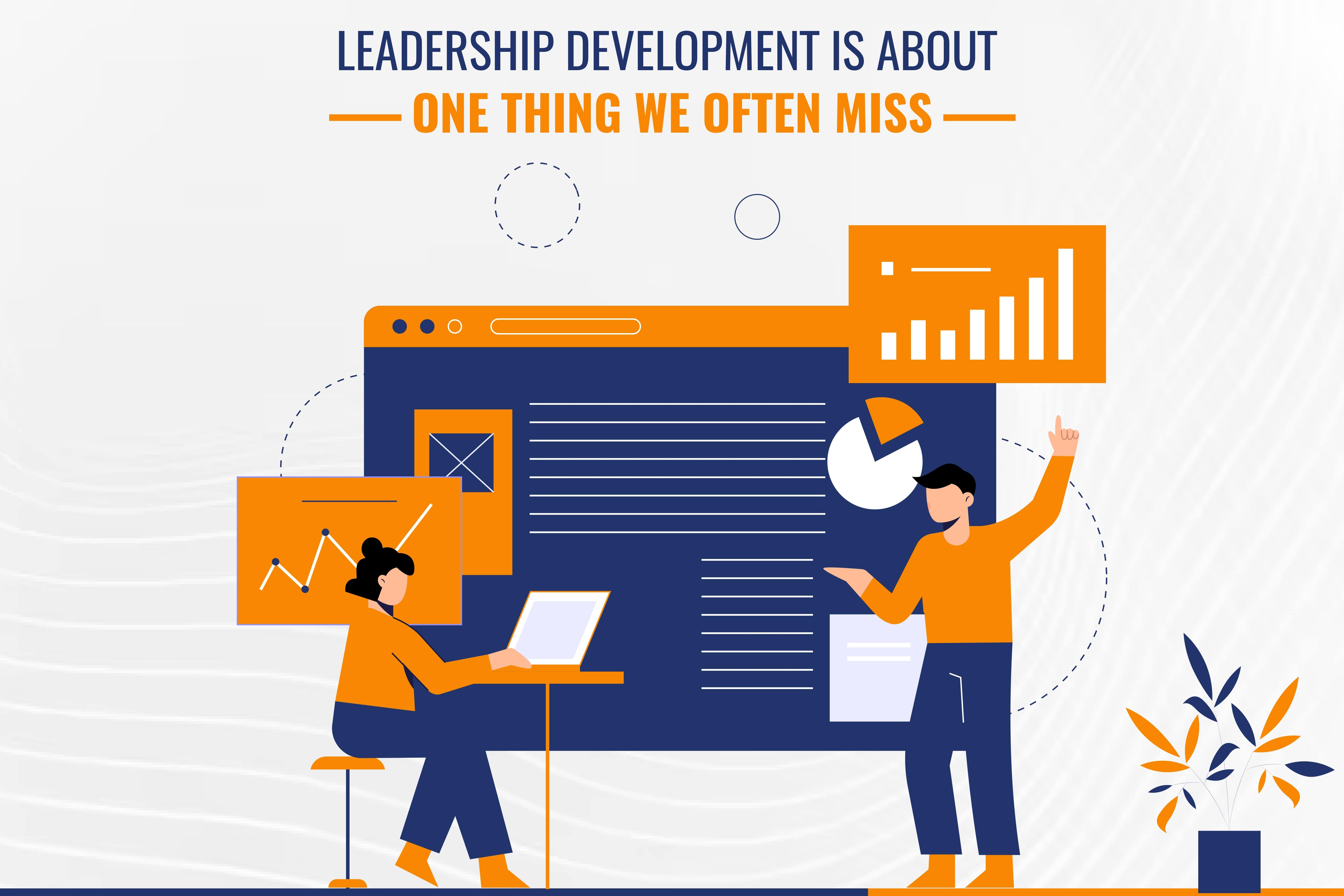
Leadership Development Is About One Thing We Often Miss
Leadership development is a topic that has garnered substantial attention in recent years, as organizations recognize the pivotal role of leaders in driving success. Countless books, seminars, and training programs promise to unlock the secrets of effective leadership. However, amid the plethora of advice and strategies, there is one crucial element that is often overlooked: self-awareness. In this article, we will delve into why self-awareness is the linchpin of leadership development and how its absence can hinder even the most talented individuals from reaching their full potential.
The Myth of Leadership
In our fast-paced and competitive world, leadership is often mythologized as a set of innate traits possessed by charismatic, confident individuals. These individuals are perceived as natural-born leaders, capable of inspiring and guiding others effortlessly. However, this romanticized view of leadership fails to acknowledge the complexities of the role and the profound impact of self-awareness.
Leadership, in reality, is not solely about charisma or self-confidence. It's about understanding oneself, empathizing with others, and making informed decisions that benefit the organization and its members. Leadership is a skill that can be cultivated and refined through effective Leadership and Management Skills Development initiatives and certainly continuous learning and self-improvement. At its core, effective leadership is rooted in self-awareness.
The Essence of Self-Awareness
Self-awareness is the ability to recognize and understand your own thoughts, emotions, strengths, weaknesses, and motivations. It involves a deep and honest exploration of who you are, how you relate to others, and how you impact the world around you. Self-awareness is the foundation upon which all leadership skills are built, as it empowers individuals to navigate the complexities of human interaction with empathy, authenticity, and adaptability.
Here are some key aspects of self-awareness that are essential for effective leadership development:
Emotional Intelligence:
Self-aware leaders are attuned to their emotions and can manage them effectively. They also possess a high degree of emotional intelligence, enabling them to empathize with the emotions of others and build strong relationships.
Authenticity:
Authentic leaders understand their values and beliefs and stay true to them. They do not try to mimic someone else's leadership style but instead embrace their uniqueness.
Self-Reflection:
Self-aware leaders regularly engage in self-reflection, analyzing their actions, decisions, and their impact on others. This introspection allows them to identify areas for improvement.
Adaptability:
Self-awareness enables leaders to adapt to changing circumstances and feedback. They are open to constructive criticism and are willing to make necessary adjustments.
The Consequences of a Lack of Self-Awareness
On the flip side, leaders who lack self-awareness can have detrimental effects on their organizations and teams. Here are some consequences of a lack of self-awareness in leadership:
Ineffective Communication:
Leaders who are not self-aware often struggle to communicate effectively. They may be unaware of their communication style or how their words and actions are perceived by others, leading to misunderstandings and conflicts.
Poor Decision-Making:
A lack of self-awareness can cloud judgment and lead to poor decision-making. Leaders who do not understand their biases, motivations, and limitations may make choices that are not in the best interest of their organization.
Difficulty Building Trust:
Trust is a cornerstone of effective leadership. Without self-awareness, leaders may come across as inauthentic or insincere, making it difficult to build trust among team members.
Resistance to Feedback:
Leaders who lack self-awareness often resist feedback and criticism, viewing it as a personal attack rather than an opportunity for growth. This resistance can stifle personal Leadership Training and Development and hinder team progress.
Cultivating Self-Awareness in Leadership
Recognizing the importance of self-awareness is the first step toward effective leadership development. Here are some strategies to cultivate self-awareness as a leader:
Mindfulness Practices:
Engage in mindfulness meditation or other practices that encourage self-reflection and emotional awareness. These practices can help you better understand your thoughts and emotions.
Seek Feedback:
Encourage open and honest feedback from peers, mentors, and team members. Actively listen to their perspectives and be open to making necessary changes.
Journaling:
Regularly journaling your thoughts, experiences, and challenges can provide valuable insights into your own behavior and thought patterns. This facilitates effective Leadership Training and Development.
Assessments:
Consider taking personality assessments, such as the Myers-Briggs Type Indicator or the Emotional Intelligence Appraisal, to gain a deeper understanding of your personality and emotional intelligence.
Coaching and Mentoring:
Work with a leadership coach or mentor who can provide guidance and support in your self-awareness journey. A good coach for Leadership and Management Skills Development can significantly impact your personal and professional growth.
Peer Groups:
Join leadership or peer groups where you can engage in discussions and share experiences with others on a similar path of self-discovery.
Final Words
In the realm of Leadership Skills Development Training, self-awareness is the often-overlooked element that can make or break a leader's success. It is the cornerstone upon which all other leadership skills are built. Leaders who invest in understanding themselves, their emotions, and their impact on others are better equipped to lead with authenticity, empathy, and effectiveness.
Aspiring leaders and organizations should prioritize self-awareness as a fundamental component of leadership development. By doing so, they can foster a culture of self-awareness that not only benefits individual leaders but also drives organizational success through improved communication, decision-making, and trust. In the end, leadership development is not about creating mythical figures; it's about nurturing self-aware individuals who can lead with purpose, authenticity, and humility.
